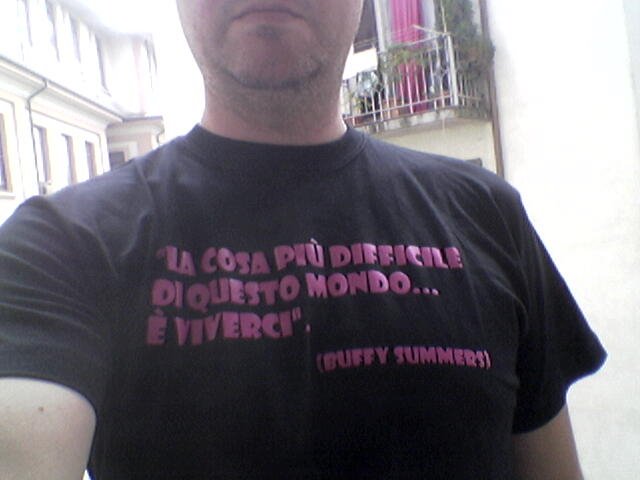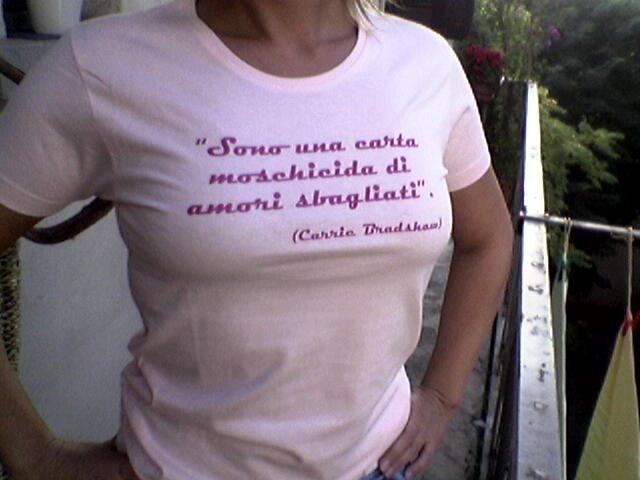L'EDICOLA DI LOU - Stralci, cover e commenti sui telefilm dai giornali italiani e stranieri
VARIETY
I cattivi non sono mai stati così...serial
"Lately on TV, bad guys appear to be having all the fun, with a wave
of programs romanticizing — if not quite glorifying — those who do
terrible things. Some of TV’s most compelling characters of the current generation
have been antiheroes, from Tony Soprano to “Breaking Bad’s” Walter
White. Yet the appeal of the dark side looks to be growing, branching
beyond the permissive confines of cable to major networks as well. Television often gets an unfair rap regarding violence, with
academics and pundits overreaching to make the case for a correlation.
That said, there is something unsettling — or just plain icky — about
the media and public fascination with figures like real-life
cop-turned-killer Christopher Dorner, who upstaged President Obama’s
State of the Union address on cable news. In the wake of the Newtown school shooting, critic Roger Ebert quoted
from his review of “Elephant,” which placed any media blame for
inspiring such mass shootings on news, not drama. All that seems true. Yet there is something distasteful, at the very
least, about dramatic programming making killers the cool kids, having
the hottest sex and driving the nicest cars.
A brief sampling of the coming weeks finds audiences being asked to
hang around with a young Norman Bates (A&E’s “Bates Motel”) and
Hannibal Lecter (NBC’s upcoming “Hannibal”). They join the suave serial
killer at the heart of Fox’s “The Following,” who always seems to be
several steps ahead of the bedraggled FBI agent on his trail; and the
handsome mob boss who steals scenes, among other things, in ABC’s “Red
Widow.” Heck, even the evil side of NBC’s short-lived Jekyll-and-Hyde
knockoff “Do No Harm” was far more interesting than his good side. To be fair, pity the poor broadcast networks. Put on procedurals
where the good guys where white hats, and they’re accused of boring
cookie-cutter development. Try breaking (or at least stretching) the
mode, and people wonder if they’re not helping breed sociopaths. It’s simplistic to say that focusing on antiheroes glorifies
violence. After all, the willingness to explore moral ambiguity has
yielded some of the best and most provocative shows on TV, from “Dexter”
to “Homeland,” “Breaking Bad” to DirecTV’s “Hit & Miss,” a pleasant
surprise that unearthed unexpected depth from a transgender hitwoman.
Where such portrayals cross into unsavory territory is a matter of
context, and highly subjective. Still, if a show is defined by a
disreputable protagonist who faces opposing forces more depraved and
odious than he or she is, you might be skating on thin ice. For a cinematic example of this, think back to “Hannibal,” Thomas
Harris’ sequel to “The Silence of the Lambs.” The novel and subsequent
movie’s underlying notion was to take the monstrous title character and
essentially promote him to hero, albeit by introducing a hideous
adversary. It’s also worth noting that TV operates somewhat differently than
movies. On the bigscreen, spending time with a morally flawed character
is a one-and-done experience. By contrast, series demand an ongoing
relationship, and while that doesn’t require liking the characters,
viewers do have to care about what happens to them. That’s one reason why something like FX’s “American Horror Story” —
which revels in nastiness for its own sake, offering few redeeming
qualities among its assorted characters — is such a grim, nasty
exercise. Rebooting the show for a second season only exacerbated this
fundamental flaw.
As noted, the preoccupation with criminals — the more outlandish the
better — is hardly confined to drama (Investigation Discovery has built a
profitable niche around it), and time will determine whether the
audience’s appetite is expansive enough to support this latest wave of
scripted fare. Nevertheless, casting more evildoers in starring roles does hand
ammunition to TV’s cultural critics. Because while it’s easy to say this
is nothing new, the sensation is different when TV goes from a couple
of empathetic bad guys to one on every channel". (Brian Lowry)
venerdì 15 marzo 2013
Iscriviti a:
Commenti sul post (Atom)
"Il trivial game + divertente dell'anno" (Lucca Comics)

Il GIOCO DEI TELEFILM di Leopoldo Damerini e Fabrizio Margaria, nei migliori negozi di giocattoli: un viaggio lungo 750 domande divise per epoche e difficoltà. Sfida i tuoi amici/parenti/partner/amanti e diventa Telefilm Master. Disegni originali by Silver. Regolamento di Luca Borsa. E' un gioco Ghenos Games. http://www.facebook.com/GiocoDeiTelefilm. https://twitter.com/GiocoTelefilm
Lick it or Leave it!
















.jpg)


















1 commento:
interessante
Posta un commento